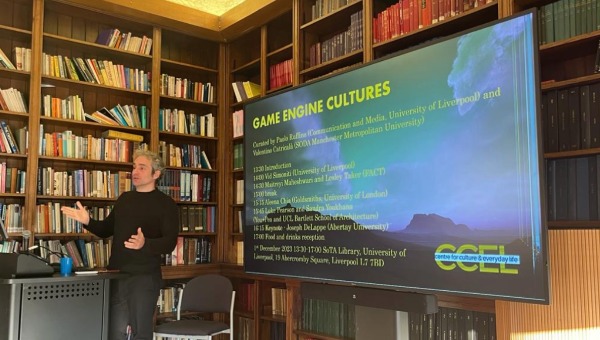Historically, the videogame industry has developed and adopted a large number of different 'engines', i.e. software used to design and produce interactive virtual environments. Over the last 10-15 years, however, two competing engines have become dominant for both triple-A and independent productions. Unity and Unreal are now used by the vast majority of videogame companies. As of 2015, both Unity and Unreal are free to download (developers only have to pay a fee once they have generated a certain amount of revenue). Both tools have been promoted by their companies with a narrative of democratisation: supposedly, anyone can now make videogames using the same tools as the big global developers.
At the same time, other sectors of creative production have begun to look at Unity and Unreal. Free access, combined with the availability of libraries of digital assets such as textures, objects, landscapes, animations and so on, has facilitated the adoption of these tools across a wide range of creative industries. Film production, product design, architecture and fashion now use Unity and Unreal to visualise 3D objects and environments. Studying the impact of videogame engines therefore requires a multi- and interdisciplinary approach, which explains the diversity of expertise of the speakers in this workshop.
Summary of talks
Vid Simoniti - Lecturer in Philosophy of Art at the University of Liverpool, and researcher in the field of contemporary art, social change, and new technologies. In his talk, Vid Simoniti observed (through the work of C. Thi Nguyen, McKenzie Wark and Donna Haraway) how videogames provide varied types of agencial affordances, and how games can become tools for worldmaking, for instance through the practice of modding.
Lesley Taker - Studio/Lab Manager and co-curator of the States of Play exhibition at FACT, Liverpool. Lesley Taker explored a large number of artistic projects exhibited at FACT and made with videogame engines. Many of these projects have involved local communities in Liverpool through a participatory process of artistic co-creation.
Aleena Chia - Lecturer in Media, Communications and Cultural Studies at Goldsmiths, University of London and researcher investigating automation and platformisation in videogame development. In her presentation, Aleena Chia highlighted how game engines operate an ‘ideological expansion’ of the techniques and tools of videogame development beyond the game industry. We are witnessing a ‘post-gamer turn’, one which is not only linguistic and cultural, but infrastructural.
Sandra Youkhana and Luke Caspar Pearson - founders of architecture studio You+Pea and curators of the Videogame Urbanism project at the Bartlett School of Architecture at UCL. You+Pea have been using videogame engines to create immersive and participatory installations, and have been experimenting with innovative methods of architectural visualisation. Their talk has provided an overview of some of their most exciting projects.
Joseph DeLappe - games and media artist and Professor of Games and Tactical Media at Abertay University in Dundee, Scotland. In a final keynote, Joseph DeLappe has given an overview of his 40-years long artistic production, including some of his artworks and performances made using, adapting, and intervening in videogames and online environments.
Future research
The presentations and Q&As have opened many possible research trajectories. It is worth mentioning four potential areas of further inquiry, to be developed in future projects:
1) 3D production is ‘pipelined’. The production flow of videogame development (often referred to by game makers as the ‘pipeline’), with its specific techniques, skills, and literacies, is being super-imposed on a variety of creative sectors. We might see modalities of organisation of labour typical of the game industry emerging across diverse areas of creative production.
2) Unity and Unreal both facilitate and regulate access to 3D production. The implementation of game engines in a variety of sectors raises issues of access for both users and producers. While these tools can be seen as opening up 3D creation to mainstream audiences, they also act as gatekeepers. The know-how literature is created and shared by users and largely available on the internet, but Unity and Unreal dictate the rules of engagement of their toolkits, forcing users to follow the latest changes and updates to their software. The potential and limitations of such a scenario become apparent whenever artists and curators work with projects created in Unity or Unreal that aim to involve the general public. Beyond their democratising potential, Unity and Unreal dictate how 3D imagery is made, and their monopoly on the market raises potential barriers to inclusivity for those not already embedded in the cultures of videogame production.
3) Videogame aesthetic becomes pervasive. Game engines dictate how 3D images are made and how they are supposed to be read. The aesthetics of videogames become fluid and applicable to a variety of creative and artistic works. Many contemporary artworks, works of computer graphics and digital products, ‘look and feel’ like videogames.
3) Assettization of culture. Unity and Unreal facilitate 3D production thanks to the large availability of assets. What happens when images, objects, animations and procedures are transformed into assets, and used across diverse sectors of creative and industrial production? What is at stake when cultural production involves the re-purposing of modular units of content? And how do cultural and creative productions change when they become modular, and are expected to be always ready to be recombined by future projects?
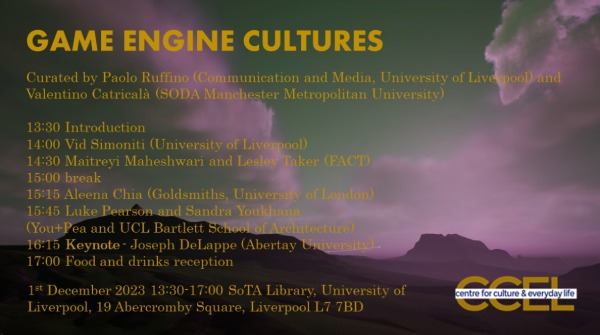
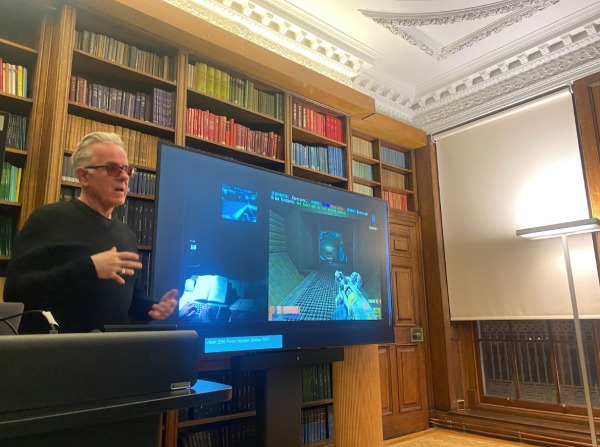
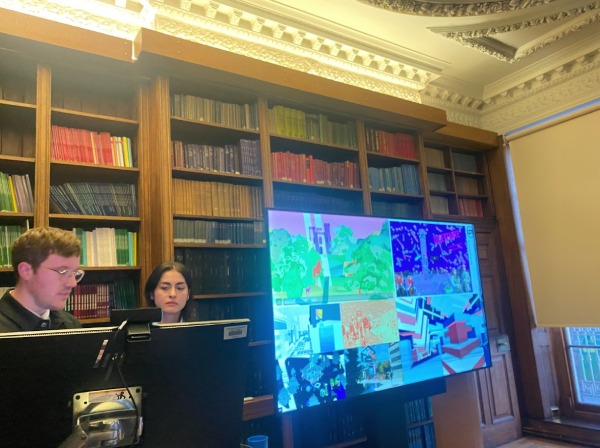
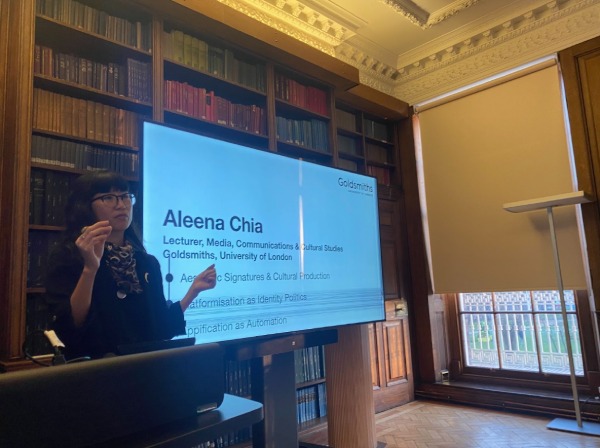
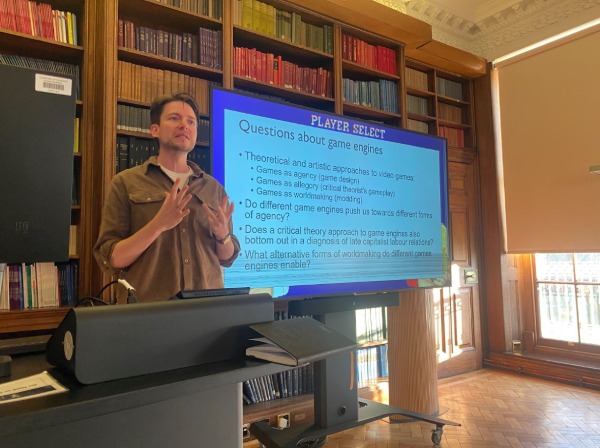
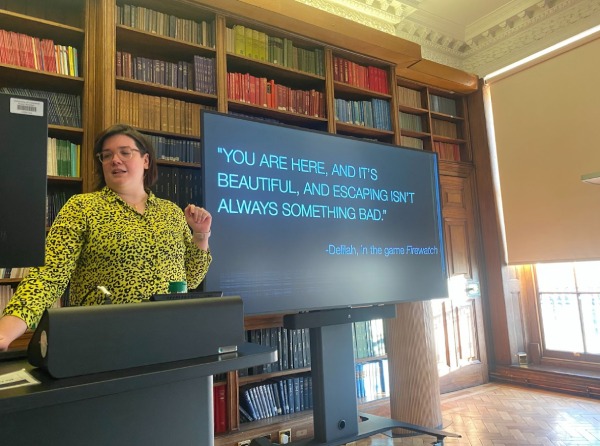
Back to: School of the Arts
